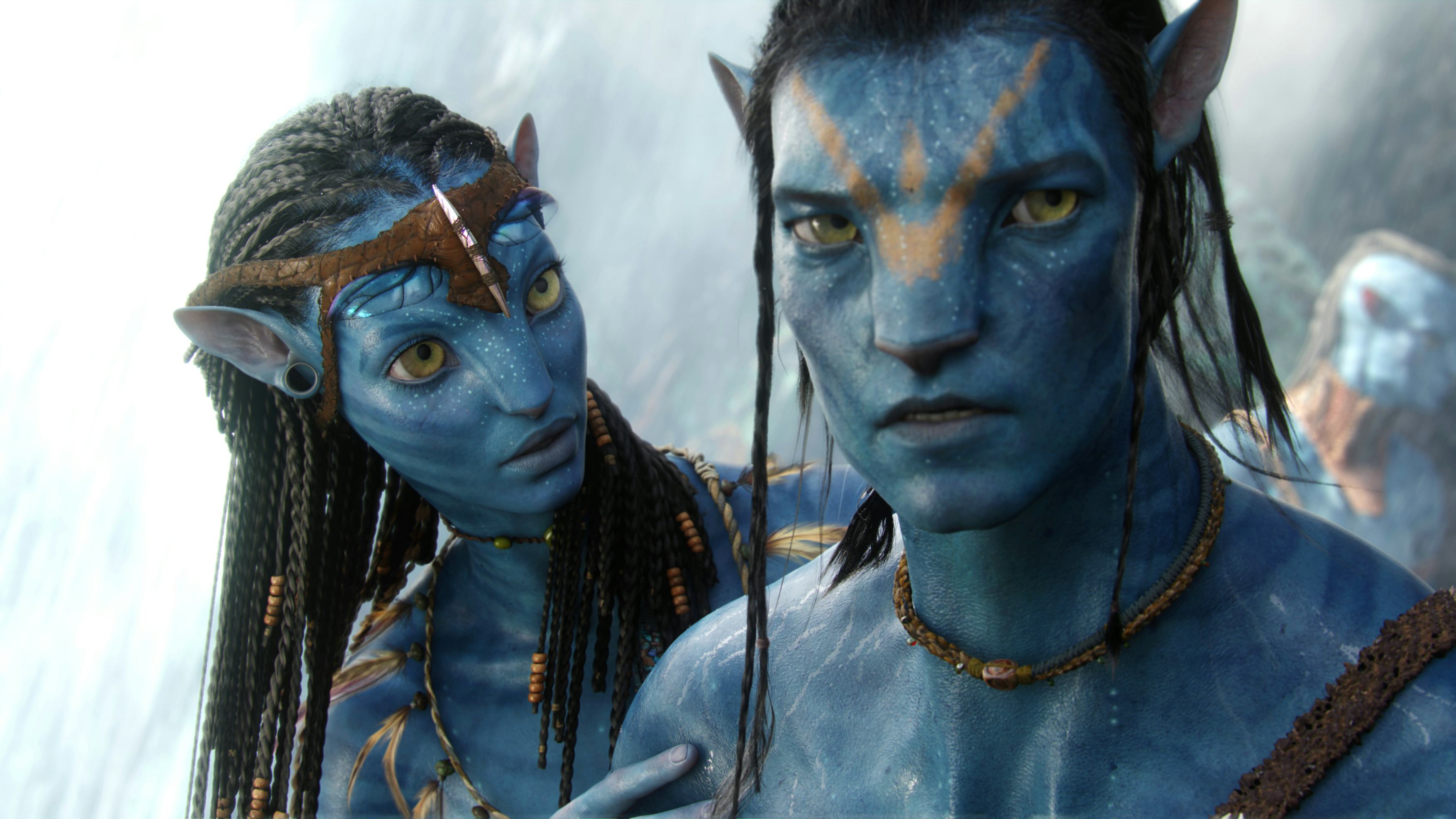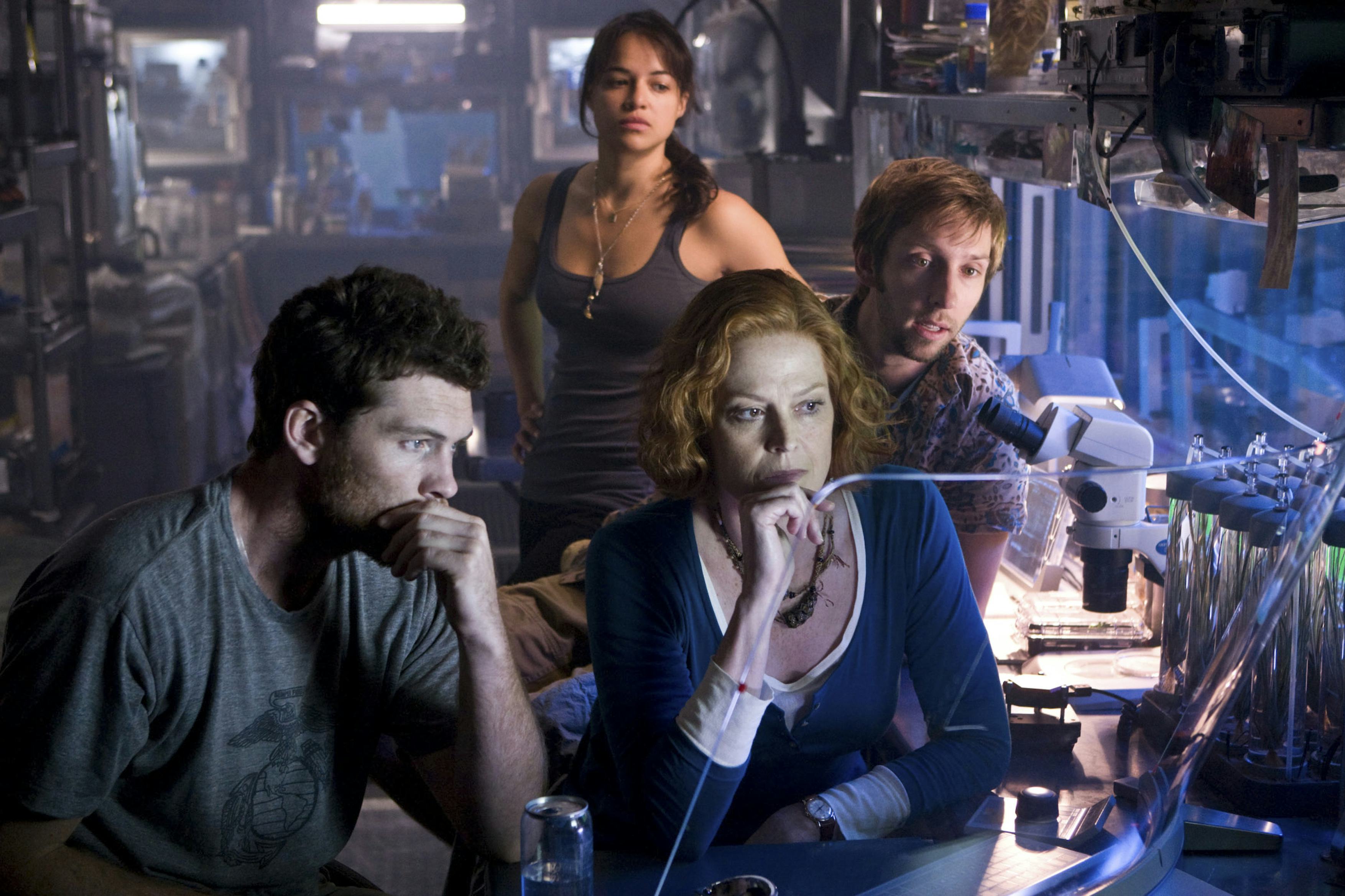
Hot take: sometimes white savior movies are good. Films like The Last Samurai and Dances With Wolves, both soulful epics where a once-callous white hero finds a new lease on life by embracing (or appropriating) a marginalized culture, were classics for a reason. They’re not without their cringeworthy or misguided moments, and they don’t necessarily have a place in a post-post-modern world where films like Dune and Killers of the Flower Moon are more interested in subverting the idea of white altruism. Straightforward white savior stories are guilty pleasures now, but even the most shameless of the bunch are too entertaining to dismiss outright.
James Cameron’s Avatar is one such relic of the past, or at least it could have been. The film arrived in 2009, at the tail end of a white savior wave, and it got plenty of flack for shamelessly cribbing from its predecessors. Even now, with one mega-successful sequel in the can and many more on the way, Avatar’s legacy is clouded by doubt and disbelief. How could a film with such a derivative, even regressive premise become such a certified hit?
For some, the answer lies in Avatar’s breathtaking visual effects. Cameron and Wēta Digital were at the bleeding edge of innovation, and continue to push the limits of what’s possible for motion capture with The Way of the Water and Avatar’s upcoming sequels. But there’s a charm to this franchise that goes beyond the surface. Avatar simultaneously feels like an homage to the best parts of ‘90s Hollywood and a glimpse at the medium's future. With a dogged commitment to its epic world, and a focus on intimate, raw performances, Avatar perfectly straddles past and future, and with 15 years of hindsight, it’s easier to see the film for the once-in-a-lifetime experience it is.
If you’ve seen Pocahontas — or, again, Dances With Wolves — then you’ve already seen about half of Avatar. It follows similar beats with an ambitious sci-fi twist, following a paralyzed Marine (Sam Worthington) as he takes his late brother’s place in an intergalactic mining project. Lightyears from Earth, on the planet Pandora, the Resources Development Administration is working hard to acquire precious resources like unobtanium. Scientists, meanwhile, use “avatars” of Pandora’s indigenous humanoid species, the Na’vi, to traverse the planet, conduct research, and interact with locals and envoys. It’s colonization on a major scale, and Worthington’s Jake Sully finds himself caught in the middle.
Upon inhabiting his brother’s avatar, Jake quickly falls in with a nearby Na’vi tribe. His military skills make him the perfect candidate to prime the locals for eviction, as their ancient home sits above the largest deposit of unobtanium for miles. Jake learns their ways to soften the blow, but things naturally get complicated as he falls in love with the chief’s daughter, Neytiri (Zoe Saldaña). The power of their bond (and a handful of RDA atrocities) inspires Jake to go native, taking a stand against the very forces that brought him to Pandora. It all culminates in an epic showdown between our hero and Colonel Miles Quaritch (Stephen Lang), who may just be one of the greatest sci-fi villains of the decade.

The best part of Avatar, other than its immaculate visuals, is its evocative narrative. Cameron’s never been afraid to make a choice, and he’s not the only one who seems 100% committed here. The film wears its heart on its sleeve, as does its cast, who throw themselves headlong into the melodrama. Saldaña is a particular standout as Neytiri; in anyone else’s hands, a headstrong native princess could have been more like an object, the idea of a character rather than one with desires and dignity. But she sets the tone for a nuanced portrayal of a fictional people, and it was great to see her evolve with the role in Way of the Water.
Sure, Avatar has its silly moments — like Jake and Neytiri’s infamous love scene — but the movie transcends any instincts to cringe by being earnest. There’s no pretense to be found here: Cameron sticks to his guns, keeps his story simple, and backs it up with incredible filmmaking. That the film still holds up today is a testament to his vision, but also to a general hunger for classic storytelling. The packaging can change, but the story's core has to be strong if it wants to stand the test of time. Against all odds, Cameron got the best of both worlds; we’re lucky enough to enjoy the spoils alongside him.







